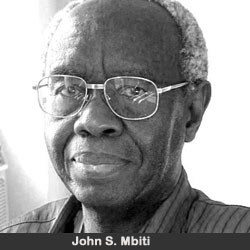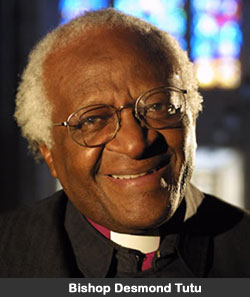Lectionary Commentaries

MISSIONARY SUNDAY (MISSION WORK ABROAD)
LECTIONARY COMMENTARY
Sunday, August 2, 2009
Valerie Kuykendall-Rogers, Guest Lectionary Commentator
Associate Minister, Friendship-West Baptist Church, Dallas, TX
Lection - Matthew 28:16-20 (New Revised Standard Version)
(v. 16) Now the eleven disciples went to Galilee, to the mountain to which Jesus had directed them. (v. 17) When they saw him, they worshiped him; but some doubted. (v. 18) And Jesus came and said to them, “All authority in heaven and on earth has been given to me. (v. 19) Go therefore and make disciples of all nations, baptizing them in the name of the Father and of the Son and of the Holy Spirit, (v. 20) and teaching them to obey everything that I have commanded you. And remember, I am with you always, to the end of the age.”
I. Description of the Liturgical Moment
 |
Missionary Sunday (Mission Work Abroad) serves to remind the black church of our connectedness and of our responsibility to minister to the least of these beyond the four walls of the church. It capitalizes on the ethic of community that stems from our African heritage. John S. Mbiti, an African Christian theologian explains, “I am because we are; and since we are, therefore I am.”1 Just as the African individual comprehends self-identity in connection with one’s community, so does the black church acknowledge that missionary work abroad: (1) recognizes our identity as Christians is linked with the Christian mandate to go and make disciples; (2) operates within the framework of the heritage of the black church2; (3) involves reaching out to the oppressed/marginalized; and (4) exemplifies the priestly and prophetic functions of the black church. |
 |
Theologically significant within this framework of Global Mission is Desmond Tutu’s Ubuntu Theology3 which makes clear that, “We are all peers, all one under Christ Jesus.”4 As such, this Sunday serves as a time to reflect and revive our resolve to engage in the Great Commission—to make disciples—to reconcile others to Christ—and to do so with the knowledge and compassion that we are all connected. |
II. Biblical Interpretation for Preaching and Worship: Matthew 28:16-20
Part One: The Contemporary Contexts of the Interpreter
My experience in the black church ironically involves the term “missionary” interjected between the words “olive” and “Baptist,” thereby indicating the extent to which the name of the church in which I grew up (Mt. Olive Missionary Baptist Church) signified one of our main purposes as Christians. As I child, I often wondered what the word “missionary” meant. My father, a deacon, and my mother, a deaconess, quelled my childish curiosity by informing me that it meant sending money to countries like Africa to help starving children. When I followed up with more questions, I soon learned that the first answer was the extent of the conversation and did not bother with more mundane questions. Nevertheless, I always wondered what it meant to be a “missionary.” I remember mission Sunday and wondering why all the women dressed in white dresses, white stockings, and white shoes. What was the point? As I matured and grew, and as I studied the historical significance of the black Church in seminary, I learned what Missionary Sunday entailed—edifying, equipping, and empowering a community to emulate the work of Christ in order to provide a refuge from the daily onslaught of denigration and degradation. As such, today we identify with the plight of those who are globally oppressed, as we continue the work of Christ.
Part Two: Biblical Commentary
The author of the Gospel of Matthew reflects the cultural norms of the society during late 1st century CE. The temple has been destroyed, divisiveness exists between the Jews and followers of Jesus, and Rome dominates and reigns over this community. In other words, the military and political leaders of Rome dominate a community on the brink of social, economic, and political disaster. The resurrection and revelation of Christ and the ensuing Great Commission constitutes the contextual framework of Matthew 28. Jesus has been executed, crucified, nailed to the cross and three days have passed. The writer of this text begins with Jesus’ followers in a state of mourning, disbelief, and confusion as their leader, savior, and redeemer has died.
After that, the eleven disciples “went to Galilee, to the mountain to which Jesus had directed them” (v. 16). The significance of Galilee is not only the mountainous terrain, indicating the difficulty in getting there, but Galilee is the place where Jesus first began his ministry.
The disciples see and worship the resurrected Christ, although some also doubted it was him (v. 17). The significance of worshipping Jesus points to the Roman edict to only worship the Roman emperor or political leaders. Worshipping Jesus represents how this community of believers went against the social and cultural norms to worship the only one worthy of worship—Jesus. Despite the time the disciples spent with Jesus, when they saw Jesus revealed to them, some still doubted. Is this not what we do today? Despite the amount of time spent in worship with Jesus, when Jesus reveals himself, we doubt.
Jesus does not appear fazed in the least by their doubt and goes on to greet his disciples by reminding them “… all authority in heaven and on earth has been given to me” (v. 18). Now that Jesus has reminded the disciples of his sovereignty and of his omnipotence, Jesus gives them their mission: “Go therefore and make disciples of all nations (emphasis mine), baptizing them in the name of the Father and of the Son and of the Holy Spirit…” (v. 19). Notice, if you will, that Jesus said “all nations,” not just our little community, not just our neighbors down the street, not just our family—everyone!
Jesus ended this commandment by telling them how to do it. The disciples are to teach “them to obey everything that I have commanded you. And remember, I am with you always, to the end of the age” (v. 20). Jesus, in this verse, reminds them that he is Emmanuel. Why? They are his disciples; they have spent untold amount of minutes, hours, days, weeks, months, and years with him. Don’t they know he is always with them? Then why end this passage, and this book, with the words “I am with you always, to the end of the age?”
Perhaps the reminder is needed in order to comfort the disciples, because Christ knows it is not going to be easy. Doing the work of God is never easy when you are going to places that may not welcome you with open arms. But our failure to take this command seriously will not bode well for us when we stand before God. The eleven disciples represent the Church today. It was the disciples and apostles who helped establish the Church, so this Great Commission extends to the Church. Go to “all nations.” What a challenge. Yet, the work of the Christian Church remains unchanged; the task of global missions within the church remains unchanged. Disciples must actually co-labor with Christ by going to “all nations” in all ways possible.
Celebration
Just as Mbiti and African tradition reminds us of our connectedness with each other, this text reminds us that all nations are to be part of the realm of God. We can go forth and engage in missionary work abroad, resting in the blessed assurance that Jesus is with us. We get to carry the compassion of Christ, the love of Christ, and the liberating power of Christ to the world—that’s cause to celebrate.
Descriptive Details
The descriptive details in this passage include:
Sights: The Galilee mountains, rocky terrain, grass, rugged hills (v. 16); worship and the sight of Jesus (v.17); envision the outstretched hands of Jesus, what he is wearing, and the wounds on his hands and feet; and
Sounds: The voice of Jesus speaking to the eleven disciples commanding them to engage in the Great Commission; imagine the voice of Jesus; attempt to emulate the sound that Christ made, being careful to note that this is an interpretation, not a re-enactment.
Notes
1. Battle, Michael. Blessed are the Peacemakers: A Christian Spirituality of Nonviolence. Macon, GA: Mercer University Press, 2004; Becker, William H. “The Black Church: Manhood and Mission.” Journal of the American Academy of Religion (Sept. 1972): 316-333;
Floyd-Thomas, Stacey, Juan Floyd-Thomas, et al. Black Church Studies: An Introduction. Nashville, TN: Abingdon Press, 2007; Lincoln, C. Eric and Lawrence H. Mamiya. The Black Church in the African American Experience. Durham, NC: Duke University Press, 2003.
2. For further reading on heritage of the black Church, consult Lincoln, C. Eric and Lawrence H. Mamiya. The Black Church in the African American Experience. Durham, NC: Duke University Press, 1990.
3. For further reading on Ubuntu Theology read, Battle, Michael. Reconciliation: The Ubuntu Theology of Desmond Tutu. Cleveland, OH: Pilgrim Press, 1997.



